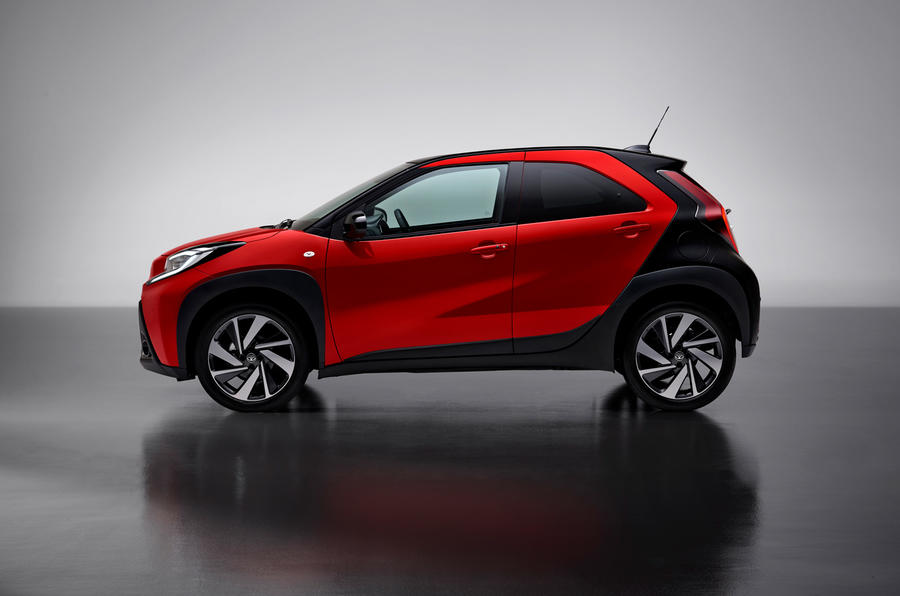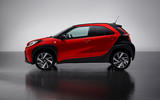Conventionally fuelled superminis and city cars have long been tipped to become early casualties of the shift to all-out electrification.
Their waning profit margins, near-incompatibility with hybridisation and negative impact on fleet emissions figures mean larger, more costly and increasingly electrified cars have been the priority for most major manufacturers in recent years.
But Toyota has bucked the trend by introducing the new Toyota Aygo X, a higher-riding but still diminutive third-generation version of its consistently strong-selling city car. Although it has grown slightly, at 3700mm long and 1740mm wide, it will still be comfortably one of the smallest combustion cars on sale and it serves as proof that Toyota views the city car as a viable revenue stream for at least one more model cycle.
Toyota Europe vice-president Andrea Carlucci is confident that the Japanese firm can sustain an offering in this endangered segment. He told Autocar that the “strong equity we have built over the last 15 years with two generations of the previous vehicle” cements the Aygo nameplate as a front runner.
Carlucci also highlighted, in particular, “the great job our UK colleagues have been doing. It’s by far one of the most successful markets – if not the most successful – in Europe.” Indeed, the Aygo has outsold the larger Toyota Yaris in the UK every year since 2015, and in the first nine months of 2021 – the current car’s final full year on sale – it was only slightly behind the much newer Toyota Corolla and Toyota C-HR in terms of outright UK sales, with 15,009 Aygos sold.
The Aygo X will not go up against the same array of competitors faced by its predecessor at launch in 2014. Seat and Skoda made their identical Mii and Citigo EV-only in 2019 before withdrawing them from production altogether; Renault’s rear-engined Twingo is now EV-only and unavailable in the UK; and ex-production partners Citroën and Peugeot will no longer build the Citroen C1 and Peugeot 108 alongside the Toyota Aygo in Kolín, Czech Republic.






















Join the debate
Add your comment
Cheap RHD small city cars made by the big brands, eg Daihatsu, Honda, Suzuki, Hyundai, do still exist, eg Malaysia, Indonesia and India (not to mention Japanese kei cars) but they just don't homologate them for sale in the UK and Europe - possibly due to the extra tech required for NCAP?
Toyota have certainly found a way to keep cheap city cars alive - by making a cheap city car and then charging a fortune for it! So what's the point?! £18k for the top trim for 71bhp and pop-out windows? No thanks.
Some people seem to have lost sight on why people bought compromised city cars - because they were cheap! The price of the Aygo X may seem less outrageous when compared to some competitors but then they've lept dramatically in price too.
That said, you can get the similarly powered and respected Hyundai i10 entry version that's a lot more practical for £13,195, proving Toyota are taking the wee-wee with the Aygo X's pricing.
Manufacturers used to be willing to make hardly, if any, profit on entry level small cars as they had a longer term view than they do nowadays. They were seen as invaluable to attract new and young drivers to the brand, hopefully those drivers would then buy the same company's (more profitable) models as their needs changed. With the costs of electrification and the eventual move towards autonomous vehicles many of the current brands will go to the wall, manufacturers know this so are not prepared to make that investment for the future. Well done to Toyota , they obviously have the confidence to do this, and at the same time still provide some choice for those of us who want small, light, economical vehicles.